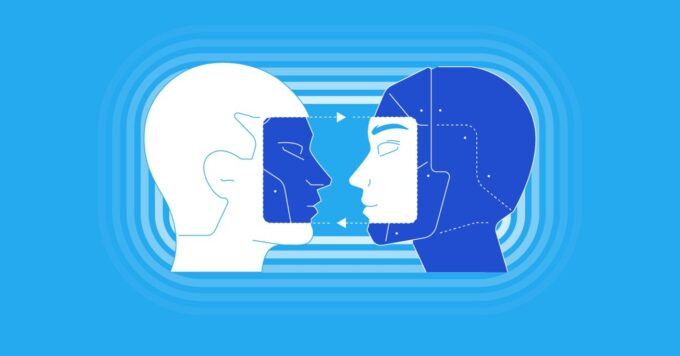The integration of Artificial Intelligence (AI) into healthcare has opened a Pandora’s box of ethical considerations. This innovative intersection aims to revolutionize patient care, diagnosis, and treatment planning, promising unprecedented advancements. However, it also brings forth complex ethical dilemmas. This blog post delves into these challenges, exploring how the promise of AI in healthcare must be balanced with ethical principles to ensure that technological advancements serve humanity’s best interests. We will dissect the core ethical concerns, including privacy, equity, bias, and autonomy, underscoring the importance of ethical guidelines in navigating the Artificial Intelligence healthcare landscape.
The Promise and Perils of AI in Healthcare

Source: etactics.com
AI in healthcare stands as a beacon of hope, offering the potential to enhance diagnostic accuracy, personalize treatment plans, and streamline operational efficiencies. Yet, this promise is not without its perils. The reliance on Artificial Intelligence systems introduces risks related to data privacy breaches, algorithmic bias, and the erosion of the patient-physician relationship. As we marvel at AI’s capabilities, we must also critically assess its implications, ensuring that its deployment does not compromise ethical standards but rather upholds the dignity and rights of every patient.
Upholding Patient Privacy and Data Security
In the realm of AI-driven healthcare, patient privacy and data security emerge as paramount concerns. The vast amounts of personal health information required to train AI models pose significant risks if not properly safeguarded. Ethical use of AI necessitates stringent data protection measures and transparent data handling practices to maintain patient trust. Healthcare providers and Artificial Intelligence developers must collaborate to implement robust security protocols, ensuring that the benefits of AI do not come at the cost of compromising patient confidentiality.
Ensuring Equity and Fairness in AI Algorithms
Equity and fairness in Artificial Intelligence algorithms stand as critical ethical pillars. The diversity of patient data used to train these systems is essential to avoid perpetuating existing health disparities. Artificial Intelligence has the potential to either bridge or widen the gap in healthcare accessibility and outcomes among different population groups. Ethical AI deployment in healthcare requires a deliberate effort to include diverse datasets and continuous monitoring to ensure that Artificial Intelligence solutions are equitable and benefit all segments of the population equally. This is precisely the area where Munjal Shah, an entrepreneur and co-founder and CEO of Hippocratic AI, is already making strides and is already leaving a mark in both AI solutions and medicine.
Addressing Bias and Discrimination in AI Systems

Source: toptal.com
Bias and discrimination in AI systems pose significant ethical challenges. These biases, often reflecting historical inequalities or dataset imbalances, can lead to skewed outcomes that disproportionately affect marginalized groups. To ethically harness Artificial Intelligence in healthcare, it is crucial to identify, measure, and mitigate these biases. This involves a multidisciplinary approach, incorporating perspectives from ethics, social science, and patient advocacy, to develop Artificial Intelligence technologies that are fair and just for all individuals.
Ethical Considerations in Diagnosis and Treatment Planning
AI’s role in diagnosis and treatment planning brings to light ethical considerations regarding accuracy, transparency, and the human element in decision-making. While AI can process vast amounts of data to inform clinical decisions, it is essential to remember the importance of human oversight. Ethical deployment of Artificial Intelligence in these areas demands a balance between leveraging AI’s analytical capabilities and preserving the clinician’s judgment and experience, ensuring that Artificial Intelligence supports but does not supplant the human touch in patient care.
The Role of Transparency and Accountability in AI Healthcare Solutions
Transparency and accountability are cornerstone principles for ethical AI in healthcare. Stakeholders, including patients, clinicians, and society at large, must have clarity on how Artificial Intelligence systems make decisions and who is responsible for those decisions. Ensuring that AI systems are explainable and their developers and users are accountable is fundamental. This transparency fosters trust and confidence in Artificial Intelligence solutions, encouraging their acceptance and integration into clinical practice.
Safeguarding Patient Autonomy and Informed Consent

Source: news-medical.net
Patient autonomy and informed consent are paramount in the ethical deployment of AI in healthcare. Patients must have a clear understanding of how Artificial Intelligence is used in their care, including the benefits, risks, and limitations. Informed consent for Artificial Intelligence involves more than just a signature; it requires an ongoing dialogue between patients and healthcare providers. This dialogue ensures that patients retain control over their healthcare decisions, reflecting respect for their autonomy and individual preferences.
Mitigating Risks of Overreliance on AI in Clinical Decision Making
The risk of overreliance on AI in clinical decision-making cannot be overstated. While AI can augment the capabilities of healthcare professionals, an undue dependence may erode critical thinking and diagnostic skills. Ethically integrating Artificial Intelligence into healthcare necessitates a framework that supports decision-making processes, ensuring that Artificial Intelligence is used as a tool to enhance, rather than replace, the expertise of healthcare practitioners.
Balancing Innovation with Patient Safety and Well-being
Innovation in AI must be balanced with patient safety and well-being. The rapid pace of Artificial Intelligence development necessitates a cautious approach to implementation, where patient safety is not compromised for the sake of innovation. Ethical considerations must guide the development and deployment of Artificial Intelligence technologies, ensuring that they are rigorously tested and validated before being introduced into clinical settings. This balance is crucial for maintaining trust in the healthcare system and ensuring that technological advancements truly benefit patients.
Ethical Implications of AI in Research and Clinical Trials

Source: cedars-sinai.org
The use of AI in research and clinical trials introduces ethical implications concerning consent, transparency, and the interpretation of results. Artificial Intelligence can significantly accelerate research, offering insights into disease mechanisms and potential treatments. However, the ethical conduct of AI-enabled research requires clear communication with participants about the use of Artificial Intelligence, safeguards to protect their data, and careful consideration of how Artificial Intelligence findings are reported and applied to ensure they contribute meaningfully to medical knowledge and patient care.
Conclusion: Striving for Ethical Excellence in AI-Enabled Healthcare
The journey toward ethical excellence in AI-enabled healthcare is ongoing and complex. It demands a commitment from all stakeholders to navigate the ethical dilemmas presented by Artificial Intelligence with diligence, integrity, and a steadfast focus on the well-being of patients. By addressing the ethical challenges head-on, fostering an environment of transparency, accountability, and inclusivity, and prioritizing patient safety and autonomy, we can harness the full potential of Artificial Intelligence in healthcare. This ethical framework not only guides current AI applications but also lays the foundation for future innovations, ensuring that they are developed and deployed in a manner that upholds the highest ethical standards, benefiting society as a whole.







